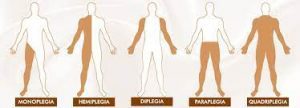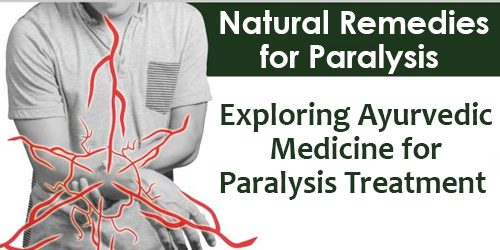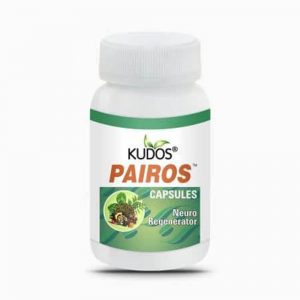Natural Remedies For Paralysis: Exploring Ayurvedic Medicine For Paralysis Treatment
A person’s capacity to move and participate in daily activities is severely restricted when they have paralysis, which has a significant negative influence on their lives. Paralysis, whether brought on by a stroke, spinal cord damage, or neurological conditions, poses significant physical and psychological difficulties. In the search for efficient treatments, growing interest has been shown in natural cures that can offer hope and enhance the quality of life for paralyzed people.
Ayurvedic medicine appears as a comprehensive strategy for managing paralysis in the middle of this search for alternative treatments. Ayurveda offers a thorough method of healing that addresses the physical, mental, and spiritual components of a person’s well-being thanks to its age-old wisdom and focus on reestablishing balance and harmony inside the body. Let’s examine how Ayurvedic medicine might be able to bring healing and hope to people who are paralyzed.
In addition to restricting physical movement, paralysis also lowers overall quality of life and mental wellbeing. Conventional therapies frequently only target symptom management, whereas Ayurveda takes a more comprehensive approach to paralysis, aiming to identify the underlying reasons and reestablish homeostasis within the body.
Each person is unique, and Ayurvedic medicine emphasizes treating the whole person rather than just a person’s isolated symptoms. It comprises a range of techniques, including yoga and meditation as well as herbal medicines, specialist therapy, dietary changes, and lifestyle adaptations. Ayurveda seeks to rejuvenate the damaged areas, enhance function, and promote general well-being by treating imbalances and assisting the body’s natural healing processes.
.
Paralysis

The complex illness of paralysis severely affects people’s life by stripping them of their capacity to move and participate in daily activities. It happens when particular body components lose or have diminished muscle function. Stroke, spinal cord injuries, traumatic brain injuries, neurological illnesses, and certain medical problems are only a few of the many potential causes of paralysis.
People who are paralyzed have a lack of sensation and control in the affected bodily parts, which makes the physical difficulties of the condition clear. Even simple daily activities like walking, gripping objects, and keeping equilibrium become difficult challenges. This physical impairment frequently calls for the need of assistive technology and continuing medical attention, both of which might present difficulties.
However, paralysis has effects that go beyond the physical. It can take a tremendous emotional and psychological toll. As they adjust to the significant changes in their abilities and way of life, people may feel frustrated, sad, anxious, or depressed. The difficulties of adjusting to a new way of life and the loss of independence can have a serious negative impact on one’s mental health.
Additionally, paralysis can have a significant impact on a person’s relationships and social interactions. Because of the restrictions that paralysis imposes, some people experience loneliness and a sense of social isolation. It may be challenging for the paralyzed person to maintain their old tasks and responsibilities, engage in hobbies, or participate in social activities, which can lead to identity loss and tension in interpersonal relationships.
Ayurvedic Approach to Paralysis Treatment
According to Ayurveda, paralysis is a symptom of a balance issue with the doshas, which are the underlying forces that control every element of our existence. The Vata, Pitta, and Kapha doshas, along with other minor doshas, are essential for maintaining both bodily and mental balance. An exacerbated Vata dosha, which is characterized by dryness, coldness, and instability, is frequently linked to paralysis.
According to Ayurveda, the obstruction of the flow of essential energy and nutrients to the affected areas is the primary cause of paralysis. Numerous things, including poor diet, poor lifestyle choices, stress, trauma, or genetic susceptibility, might contribute to this disruption. The goals of ayurvedic medicine are to renew the harmed tissues, balance the doshas once more, and assist the body’s natural healing processes.
The exact doshic imbalances seen and the patient’s individual constitution are taken into account while developing an ayurvedic treatment plan for paralysis. Carefully chosen herbal remedies are used to support the nervous system, improve circulation, and encourage tissue regeneration. Herbal remedies are well known for their therapeutic capabilities. To address the underlying reasons and treat symptoms, ayurvedic formulations with substances such ashwagandha, guggul, brahmi, and shilajit are frequently utilized.
To supplement the internal treatments, Ayurveda also provides specific therapies and methods. Panchakarma, a well-known Ayurvedic detoxification and rejuvenation therapy, is important in the treatment of paralysis. Panchakarma therapies aid in toxin removal, balance restoration, and general vitality improvement. Abhyanga, or therapeutic massages, are also used to improve circulation, ease muscle stiffness, and encourage relaxation.
Dietary and lifestyle changes are essential parts of Ayurvedic paralysis treatment. By placing a strong emphasis on the eating of warm, nutritious meals like cooked vegetables, whole grains, and herbal teas, one can calm the agitated Vata dosha and supply vital nutrients for healing. Regular movement, yoga, and meditation are advised to promote the general wellbeing of paralyzed people by strengthening muscles, boosting circulation, and fostering mental clarity.
Benefits of Ayurvedic Medicine for Paralysis
With its long history and comprehensive approach, ayurvedic therapy has a lot of potential for treating paralysis. Ayurveda uses the strength of herbs, therapeutic techniques, and individualized therapies to address the underlying causes of paralysis and promote the body’s natural healing process.
The distinctive qualities and mechanism of action of Ayurvedic medicine for paralysis are one of its main benefits. Ayurvedic formulations are skillfully created utilizing a blend of herbs and organic substances recognized for their therapeutic benefits. These herbs, including Ashwagandha, Brahmi, Guggulu, and many others, have unique properties that support recovery by addressing the underlying imbalances.
The respected Ayurvedic herb ashwagandha is well known for its adaptogenic capabilities. It improves nerve regeneration, lessens stress, and strengthens the musculoskeletal system. Another potent herb, brahmi, helps to mend nerves and promotes memory and cognitive function. Guggulu, known for its analgesic and anti-inflammatory effects, aids in reducing pain and inflammation related to paralysis.
Ayurvedic medicine provides a comprehensive approach to treating paralysis. It functions in several ways to offer a thorough healing process. First off, it revitalizes and nourishes the neural system, promoting nerve regeneration. Ayurvedic medicines have neuroprotective qualities that aid in nerve repair and function restoration.
Ayurvedic therapy also enhances blood flow to the affected areas. It aids in the clearance of toxins and assists the healing process by improving the flow of essential nutrients and oxygen. Increased mobility and comfort are also a result of improved blood circulation, which also helps to reduce pain, swelling, and inflammation.
Ayurvedic medicine also encourages general health. It emphasizes harmonizing the mind and emotions as well as treating the physical symptoms of paralysis. Panchakarma therapies, for example, are ayurvedic procedures that assist the body detoxify, release energetic blockages, and reestablish balance within the body-mind complex. This all-encompassing strategy promotes mental clarity, emotional stability, and a general feeling of vitality.
Other Ayurvedic Remedies for Paralysis
In addition to Ayurvedic paralysis medicine, Ayurveda offers a range of holistic practices that work synergistically to support the overall healing and recovery process. These complementary approaches focus on restoring balance, promoting vitality, and nurturing the body-mind complex. By integrating these practices into a comprehensive treatment plan, individuals with paralysis can unlock the full potential of Ayurveda for their well-being.
- Panchakarma Therapies: Panchakarma, a cornerstone of Ayurvedic medicine, consists of specialized detoxification and rejuvenation therapies. These therapies, such as Abhyanga (therapeutic massage), Shirodhara (oil pouring on the forehead), and Basti (medicated enemas), help remove toxins, restore balance, and revitalize the body. Panchakarma therapies not only support the physical healing process but also promote mental and emotional well-being, providing a holistic approach to paralysis management.
- Lifestyle Modifications: Ayurveda emphasizes the importance of adopting a lifestyle that supports overall health and well-being. For individuals with paralysis, incorporating appropriate lifestyle modifications can significantly enhance the healing process. This may include maintaining a regular sleep schedule, practicing stress management techniques, engaging in gentle exercises suitable for their condition, and creating a nurturing environment that promotes relaxation and positivity.
- Diet Recommendations: Ayurveda recognizes the powerful influence of food on our well-being. In paralysis management, dietary modifications play a crucial role in supporting the healing process. Ayurvedic practitioners may recommend a diet that is nourishing, easy to digest, and tailored to the individual’s doshic imbalances. This may involve incorporating warm, cooked foods, spices with healing properties (such as ginger and turmeric), and herbal teas that aid digestion and promote tissue regeneration.
- Herbal Supplements: Ayurvedic herbal supplements can complement the use of paralysis medicine by providing additional support to the body’s healing process. These supplements are carefully selected based on individual needs and doshic imbalances. Popular herbal supplements used in paralysis management include Ashwagandha capsules for nerve regeneration, Brahmi capsules for cognitive support, and Guggulu capsules for inflammation reduction. However, it is important to consult with an Ayurvedic practitioner before incorporating any herbal supplements into the treatment plan.
- Yoga and Meditation: The practice of yoga and meditation can have profound benefits for individuals with paralysis. Gentle yoga asanas, modified to suit their specific condition, can help improve flexibility, strength, and circulation. Meditation and breathing techniques promote relaxation, reduce stress, and cultivate mental clarity. These practices contribute to the overall well-being, emotional stability, and inner resilience of individuals with paralysis.
Conclusion
Ayurvedic medicine is a ray of hope when it comes to treating paralysis since it provides a holistic and all-natural method that can significantly improve the lives of those who suffer from the illness. Ayurveda corrects underlying imbalances and encourages the body’s natural healing processes by utilizing herbs, therapeutic techniques, and individualized therapies.
The advantages of using Ayurvedic medicine to cure paralysis are numerous and important. First off, Ayurveda gives a distinctive perspective on the anatomy and interrelationships of the human body. It acknowledges that paralysis impacts a person’s thoughts, emotions, and energy components in addition to their physical state. Ayurveda offers a holistic treatment that goes beyond symptom management by addressing the underlying causes of paralysis and offering thorough restoration.
Paralyzed people can enhance their quality of life by embracing Ayurvedic medicine. Ayurveda offers new opportunities for people to recover their freedom and participate in daily activities more easily since it has the power to reduce discomfort, improve mobility, and restore energy. Ayurveda also gives people power by providing a healthy, sustainable method that promotes long-term rehabilitation and general wellbeing.
Recommended Ayurvedic Medicine
There are numerous Ayurvedic medicines available that are believed to support various aspects of health and address specific conditions. These medicines are typically derived from natural sources such as herbs, minerals




